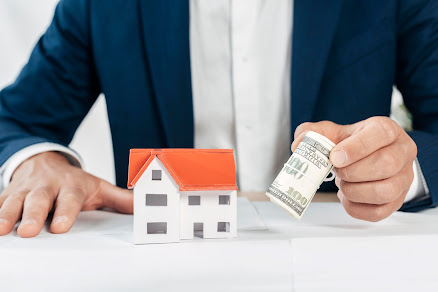What credit score do you need to buy a SBA real estate loan?
Ever wondered about the mysterious three-digit number that holds the key to your business's financial destiny? The one that lenders scrutinize, ponder over, and use as a compass to navigate the lending landscape? Yes, we're talking about your credit score.
Your credit score is not just a number; it's a decisive factor that can open doors to opportunities or keep them firmly shut. So, what does it take to unravel this credit score enigma and pave the way for your business to secure an SBA real estate loan?
Ready to dive in?
What is a Credit Score?
At the heart of every loan application lies the mysterious credit score. This three-digit number, ranging from 300 to 850, acts as a compass for lenders, guiding them to evaluate your creditworthiness. The higher the number, the better your financial standing. For SBA real estate loans, a rule of thumb is to aim for a credit score of 580 or higher. This threshold reflects your ability to pay bills promptly, instilling confidence in lenders about your future payment commitments.
Factors Influencing Your Credit Score
Understanding the factors that sway your credit score is essential. The Fair Isaac Corporation (FICO) developed a comprehensive scoring model, considering five key elements:
Payment History (35%)
Your payment history showcases your diligence in meeting due dates. Even a slight delay can impact your credit score, emphasizing the importance of timely payments.
Total Debts (30%)
The total debts you carry, including mortgages, credit card balances, and other loans, contribute to your credit utilization ratio. This ratio compares your available credit to what you owe, influencing your credit score.
Length of Credit History (15%)
A longer credit history indicates your experience in handling credit. Seven years is considered ideal to establish a good credit history, but consistent bill payment is crucial for improvement.
Mix of Credit Types (10%)
Lenders assess your ability to manage various credit types, from credit cards to instalment loans. Diversifying your credit portfolio positively impacts this aspect of your score.
New Credit (10%)
Applying for multiple loans or opening numerous credit accounts in a short span affects your credit score. This emphasizes the importance of strategic credit management to avoid adverse impacts.
What Credit Score is Needed for a Small Business Loan?
The credit score requirement for small business loans varies based on the lender and loan type. Generally, a score of 680 or higher is considered good, opening doors to most small business loans. An excellent credit score of 720 or above offers access to the best interest rates and terms.
Minimum SBA Loan Credit Requirements Per Program
To demystify the SBA credit score requirements, let's explore the minimums for different SBA commercial real estate loan programs:
SBA 7(a) Loan Minimum Credit Score
The sought-after SBA 7(a) business loan requires a minimum credit score of 650. This versatile program, offering up to $750,000 in working capital, suits various purposes, including real estate ventures.
SBA Express Loan Minimum Credit Score
For the expedited SBA Express Loan, a minimum credit score of 600 is necessary. While offering quick approval, this option may pose challenges, and a higher credit score can enhance eligibility for larger loan amounts.
SBA 504 Loan Minimum Credit Score
The SBA 504 construction loan, targeting major fixed assets, demands a credit score of 680. This program provides up to $5 million for real estate, equipment, and other assets crucial for business growth.
SBA Microloan Minimum Credit Score
The SBA microloan program, designed for small financing needs, requires a minimum credit score of 620. Collateral is often necessary, and the maximum loan amount is $50,000.
Can I Get an SBA Loan with Bad Credit?
While challenging, obtaining an SBA commercial real estate loan with bad credit is not impossible. Bad credit may lead to higher interest rates and stricter terms. If time permits, improving your credit score before applying is advisable. Some lenders may consider other credentials, such as business longevity and positive cash flow, if your credit score is less than stellar.
Conclusion
Walking on the journey to secure an SBA real estate loan demands an understanding of credit score intricacies. The path involves meticulous attention to your financial behavior, strategic planning, and aligning your business goals with the right SBA program. The SBA commercial real estate loan application process, spanning from 14 days to six months, underscores the importance of being well-prepared. Consult with your chosen lender, grasp the SBA loan requirements, and let your credit score be the key to unlocking your business aspirations.
Ready to take the leap? Contact Us and explore the possibilities of SBA real estate loans tailored to your business needs. Your financial journey starts here.




Comments
Post a Comment